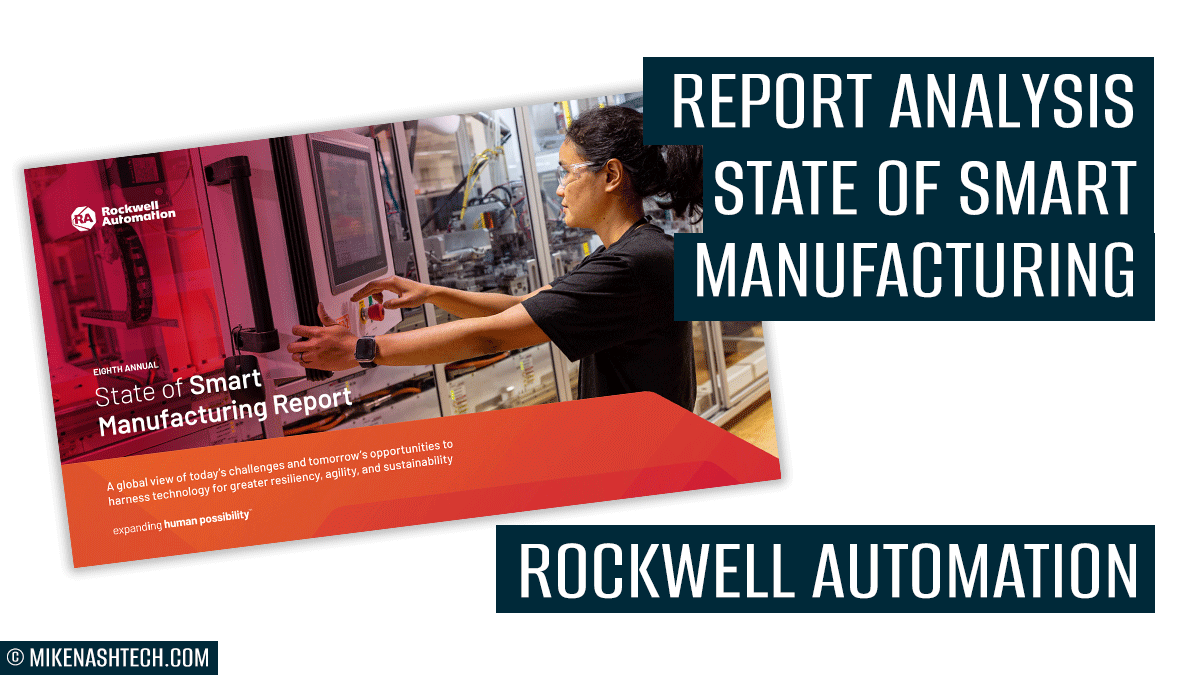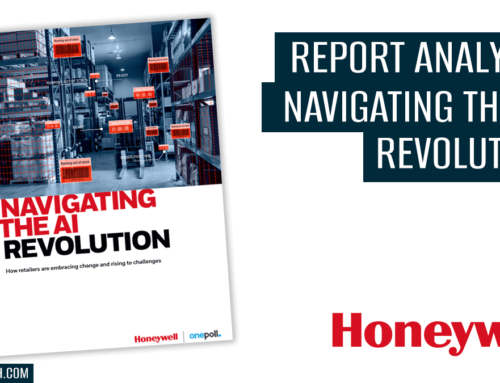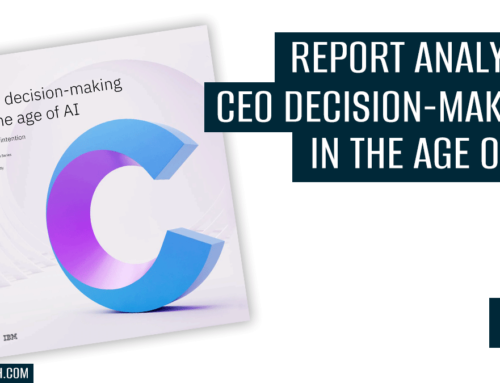Sunday, 23 April, 2023
State of Smart Manufacturing Report 2023 – Rockwell
A recent survey of 1,350 manufacturers found that 97% intend to leverage “smart” technology in their processes, but twice as many feel they lack the technology to outpace the competition. The 8th annual edition of the State of Smart Manufacturing report also revealed that 84% had adopted smart manufacturing or are actively evaluating solutions to invest in the coming year.
Report ideal for
- Anyone involved in manufacturing-related AI, cloud, analytics
- Manufacturing-related CEO, CIO, CTO, CFO’s
Outline
- 97% of participants reported plans to use smart manufacturing technology
- AI tops the list of things that will have the most impact on manufacturing ahead of automation, forecasting, and tracking & compliance
- 40% of manufacturers believe they lack the ability to use data to make decisions to outpace the competition.
- #1 internal obstacle they face in 2023 is balancing profitable growth and quality
- 45% of respondents say that demand for improved quality is prompting their companies to speed up their digital transformation
- In 2023, manufacturers still worry they won’t have enough skilled labour to keep up with the competition.
- Compared to last year’s poll, twice as many participants now report feeling technologically unable to keep up with rivals.
- 79% of manufacturers lack a complete supply chain planning solution
Putting the ‘Smart’ in manufacturing
Smart manufacturing is defined as the intelligent, real-time orchestration and optimization of business, physical, and digital processes within factories and across the entire value chain. Leading areas of smart manufacturing identified in the survey include Process Automation, Cloud/SaaS, Machine Integration, Machine Learning/Artificial Intelligence, Industrial Internet of Things (IoT), Cameras/Scanners/Drones, 5G, Generative Design, and Supply Chain Disruptions. Supply chain disruptions have made headlines over the past two years, but four out of five manufacturers still lack end-to-end supply chain planning.
I4.0 society
Industry 4.0, also known as the fourth industrial revolution, is the implementation of cutting-edge technology and data analytics to enhance the effectiveness, productivity, and adaptability of the production process. It requires integrating various technologies such as the Internet of Things (IoT), artificial intelligence (AI), machine learning, big data, and cloud computing. Machines and other equipment in a smart manufacturing system are connected to one another. They may communicate with one another, allowing for the optimisation of production processes, reduced downtime, and improved product quality. Real-time visibility into the production process is made possible through the utilisation of sensors and data analytics, enabling preventative maintenance and expedited decision-making. Smart manufacturing not only allows products to be customised to match individual customers’ unique requirements but also cuts down on waste and the amount of energy consumed and improves supply chain visibility and collaboration. In general, it is a revolutionary approach to the manufacturing process that holds the promise of considerable benefits for companies, customers, and society as a whole.
‘Technology paralysis’
One of the most shocking details in this report is that one-third of manufacturers are hampered by “technology paralysis” and that 97% of participants reported plans to use intelligent manufacturing technology to enable more agile, resilient production processes, empower the workforce, manage risk, drive sustainability, and accelerate transformation. Artificial intelligence and machine learning are catching on rapidly among manufacturers, with over 50% more using AI and machine learning over the last year.
AI will most likely significantly impact quality regarding closed-loop control, in-line quality, automation, forecasting, tracking, and compliance. Data analytics is the other concern manufacturers seek to address. Still, much of this data is either unavailable to analytics systems or companies lack the skills to extract, manage, and adequately leverage such data. The percentage of manufacturers who believe they lack the ability to use data to make decisions to outpace the competition increased by 40% over last year.
Finally
The report is a fascinating insight into the state of technology adoption in manufacturing today. The speed of technological change is opening many opportunities in every aspect of manufacturing. Despite the enormous benefits, it is clear that intelligent manufacturing adoption is behind the curve. As the economy possibly slows, AI and data analysis could unlock enormous potential. It is encouraging that AI has become a top priority. Rightly so, using AI in manufacturing can increase productivity, more precise manufacturing process design, and problem diagnosis and resolution when defects occur in the fabrication process. The secret is to invest more in AI and measure the value or return that it brings. Start with smaller projects and build towards a broader AI framework.
Thank you Rockwell for another comprehensive report. Check it out below:
Please note
I have no affiliation with the companies/technology/people mentioned. This analysis is 100% independent for the benefit of the data/business community. Please feel free to share this on your social network. Thank you.
Feel free to contact me today
I invest many hours researching the latest AI, technology, and business trends for all my clients. The knowledge is refined, distilled, and combined with many other forms of analysis and expertise to give the best advice possible.
I can get the best out of AI by:
- Spotting the latest AI opportunities for your company
- Pinpointing the best AI experts for your project or company
- Giving the best advice on AI strategy and approach
- Helping extract the most value out of AI
- …and lots more, please feel free to contact me today




